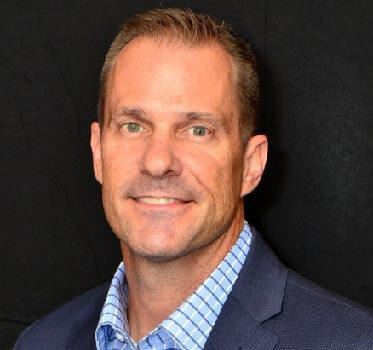Effective leadership isn't an accident. It happens when business leaders take a strategic approach of incremental growth over time to improve. While some quick gains may be possible, ongoing improvement is how leaders mold teams are incredibly effective.
Naturally, effective leadership in sales leadership goes beyond delegating tasks and setting targets. It encompasses core disciplines such as: Growing yourself, Growing your people, and Growing your company. This includes creating a compelling vision, fostering collaboration, and empowering individuals to achieve their full potential.
A true leader understands that success lies in developing a high-performance team that thrives on trust, accountability, and continuous learning. At Sandler, we have rules and strategies that help with the incremental growth necessary to become a true leader.
Sandler Rule: People Buy For Their Reasons, Not Yours.
In the world of sales and leadership, understanding other person's motivations is key.
One of my clients is a sales leader leading a team responsible for securing a binding contract with a significant customer. He recognized that he needed to align the client's objectives with his organization's offerings to win the deal, so he diligently researched the client's industry landscape, challenges, and strategic goals.
Rather than just dumping product information, he employed both strategic and tactical questioning and curiosity to uncover the client's underlying true business problem, which was not evident to the prospect early on. Then, by customizing his solution, he was able to create a unique deliverable to solve the client's business issues and achieve the ROI as well as help build the business case for moving forward.
He secured the contract, illustrating the power of understanding and catering to the other person's reasons.
Are you helping your team uncover their prospect's reasons for buying? Are you doing the same thing when you coach your team members?
Not only do people buy for their own reasons, but your team is working for their own reasons, not yours.
Sandler Rule: No Mutual Mystification.
An effective leader must master communication.
This concept was demonstrated by another of my clients, a sales manager negotiating a partnership agreement with a potential client.
Recognizing the importance of transparency, he set out to ensure that both parties had a mutual understanding of expectations, terms, and desired outcomes. He facilitated open discussions and encouraged the client to voice any concerns or uncertainties.
By doing so, he eliminated many potential misunderstandings—a.k.a. assumptions—by actively addressing each point of contention and seeking clarity.
This commitment to transparency built trust and rapport, enabling a mutually beneficial agreement that served as a solid foundation for a long-term partnership
What are you doing to help your team get better at clear communication? When you're coaching your team members, what do you do to avoid mutual mystification?
Strategies For Effective Leadership
In addition to those two Sandler Rules, there are several other strategies essential to transforming yourself into an effective, successful leader.
Building Strong Relationships
Effective leaders prioritize relationship-building by investing time and effort across the organization. They build strong relationships with finance, operations, IT, marketing, and senior leaders. Companies buy in teams, and we need to sell to teams. This goes beyond just the sales organization. They foster a culture of trust, open communication, and collaboration, creating an environment conducive to successful negotiations and problem-solving.
Continuous Learning
Successful leaders embrace a growth mindset and encourage their teams to do the same. They promote ongoing learning and development, equipping their sales teams with the skills necessary to adapt to market changes and confidently navigate complex negotiations. Part of their value to their team is to stay ahead of their industry and market and serve up new insights to their teams.
Emotional Intelligence
Do you care? Leaders with high emotional intelligence exhibit self-awareness and empathy. They navigate negotiations gracefully, understanding the emotions and motivations of their team and clients. This empathetic approach fosters a harmonious environment and facilitates win-win outcomes.
Effective leadership is indispensable for achieving sustainable success in sales leadership.
By adopting these principles, you can inspire your team and pave the way for transformative outcomes. By continually honing your skills and implementing these strategies, you can elevate your leadership and drive your organization toward unprecedented growth and profitability.
Which of these rules and strategies will you start working on? Remember, you don't have to do it all at once. Incremental growth over time is key.

Clint Babcock
Clint has nearly 25 years of experience developing and directing organizations' recruiting and sales strategies, as well as coaching and mentoring "C-level" executives. His expertise is in training inside and outside consultative sales teams in new business development, profit and loss management, sales compensation, key account management, and product/service positioning. Specialties include corporate sales training, public speaking, hiring assessments, and business development structuring.






